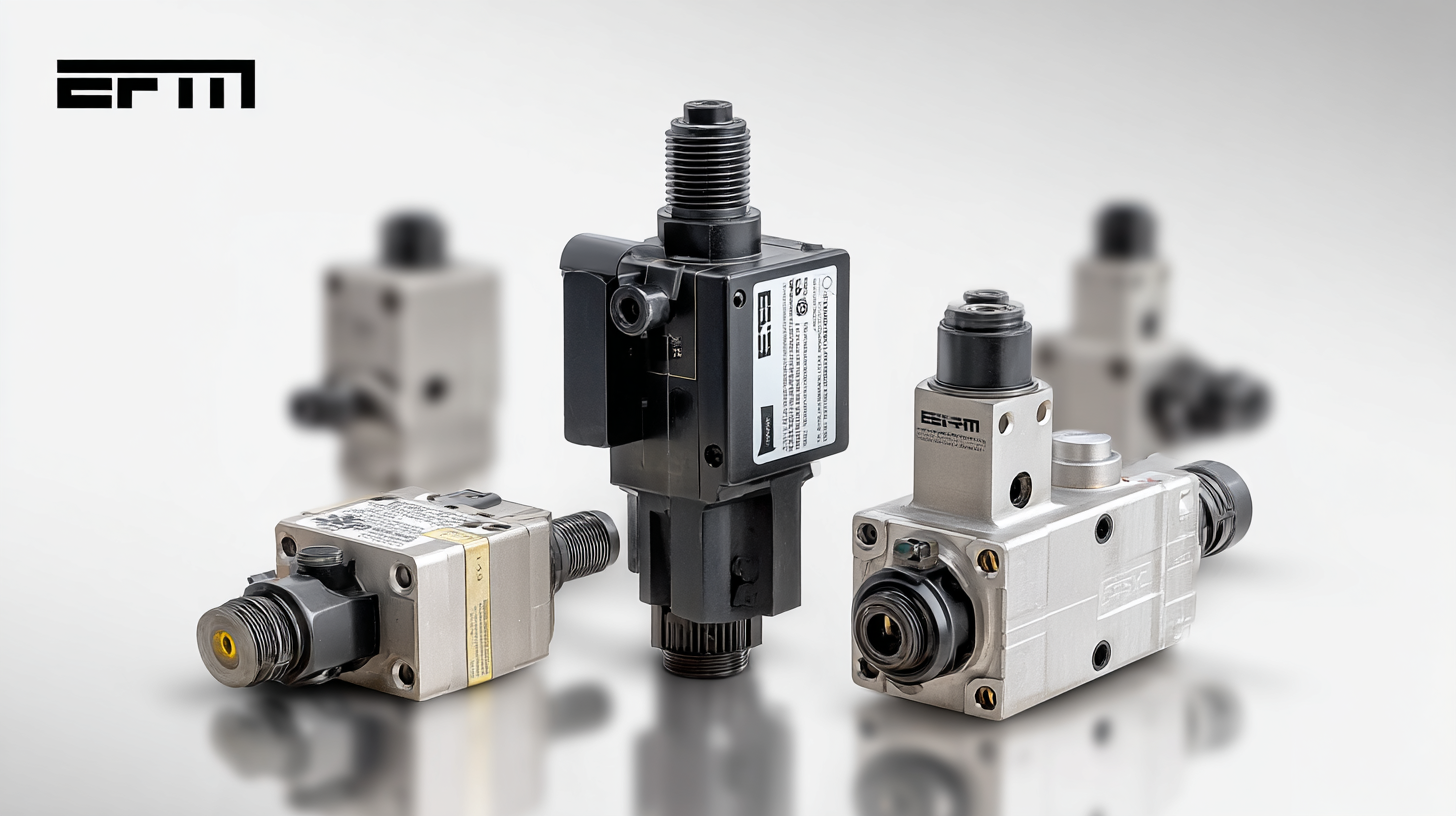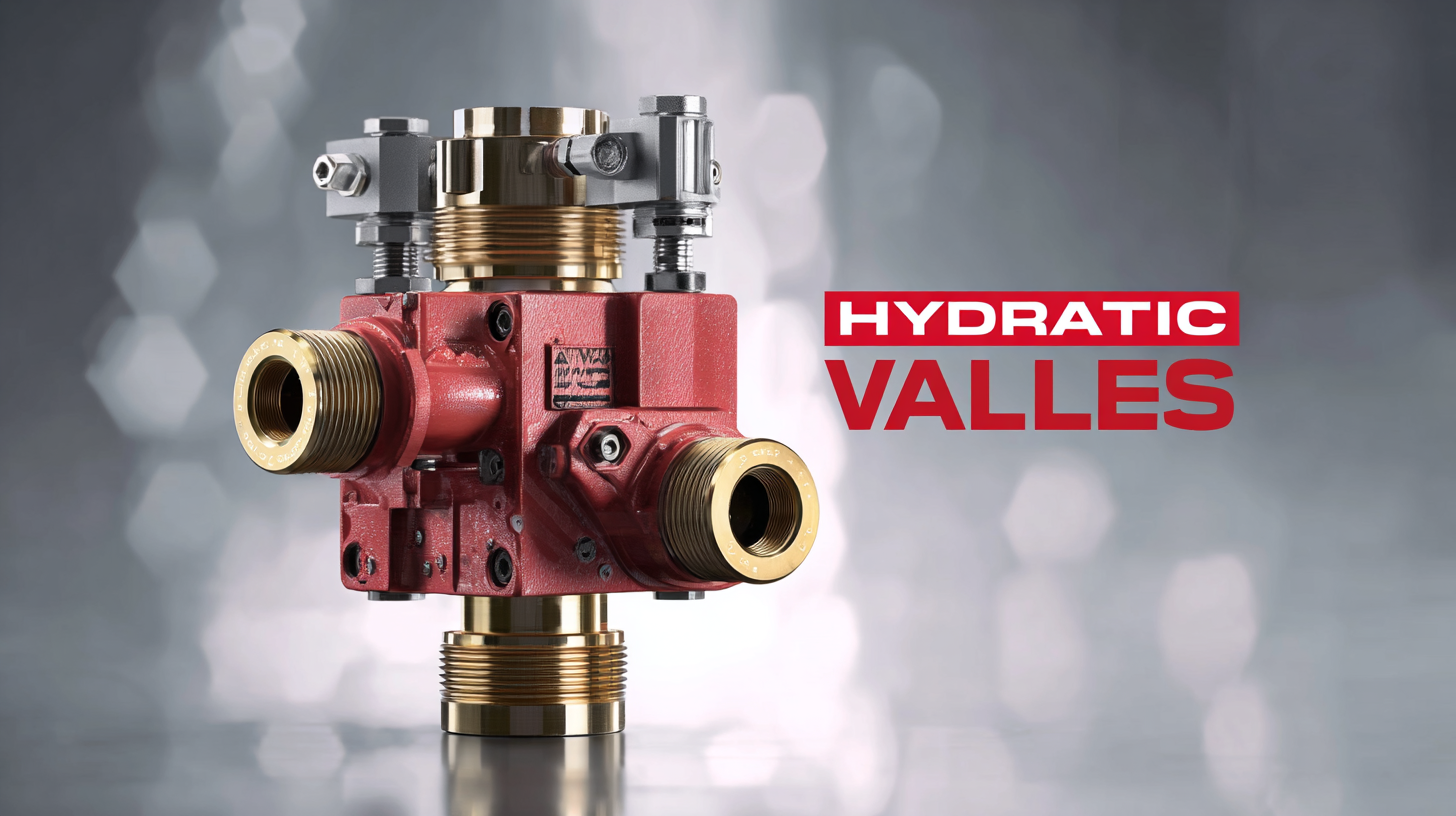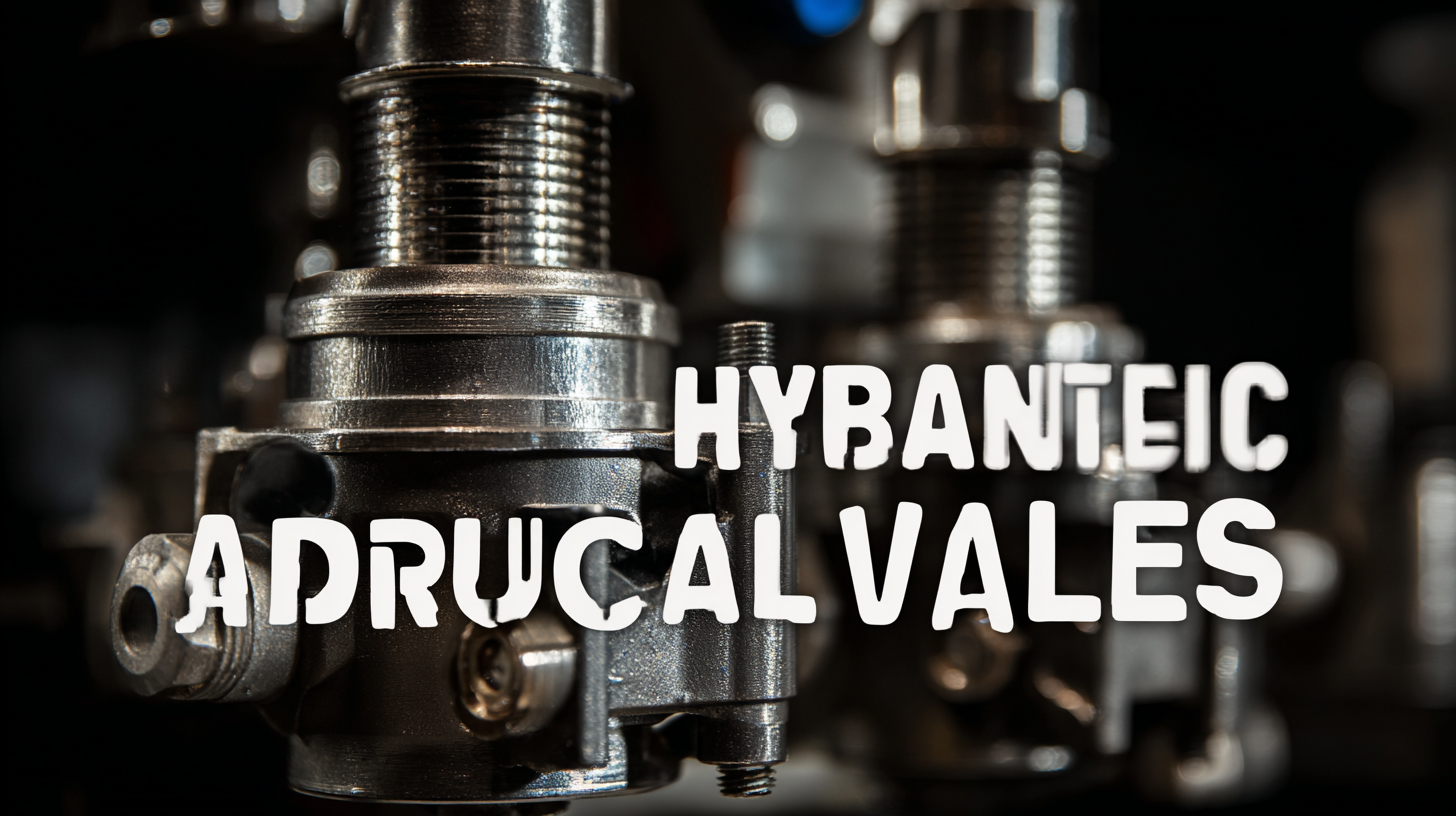- Ambawadi, Ahmedabad, Gujarat
- View Mobile Number
What are the Advantages of Using the Best Hydraulic Valves in Your Operations
In the dynamic field of industrial operations, the significance of efficient fluid control cannot be overstated, particularly when it comes to Hydraulic Valves. According to a report by MarketsandMarkets, the global hydraulic valve market is expected to grow from USD 12 billion in 2021 to USD 16 billion by 2026, reflecting a compound annual growth rate (CAGR) of 6.3%. This growth is driven by the increasing demand for hydraulic systems across various industries, including construction, automotive, and manufacturing. Utilizing the best hydraulic valves not only enhances system performance but also improves operational safety and reduces maintenance costs. With advancements in technology, high-quality hydraulic valves provide greater precision, reliability, and energy efficiency, making them essential for any operation aiming for competitiveness in today's marketplace.

Enhanced Efficiency and Performance in Hydraulic Systems
Enhanced efficiency and performance in hydraulic systems are crucial for maximizing productivity across various industrial applications. The use of high-quality hydraulic valves can significantly impact the operational capabilities of machinery. According to a report by the International Journal of Advanced Manufacturing Technology, optimized hydraulic systems can boost overall energy efficiency by up to 20%. This improvement not only reduces operational costs but also extends the lifespan of hydraulic components.
Moreover, the incorporation of advanced hydraulic valves enables precise control over system pressure and flow rates, which enhances responsiveness and reliability in challenging conditions. Research from the Hydraulic Institute indicates that systems utilizing top-grade hydraulic valves experience a 15% increase in performance consistency. This reliability translates into minimized downtime and maintenance costs, essential factors for industries where operational efficiency directly correlates with profit margins. Investing in the best hydraulic valves ultimately leads to more streamlined processes and higher output quality, ensuring that businesses remain competitive in fast-paced markets.
Improved Precision and Control for Complex Operations
Hydraulic valves play a critical role in ensuring improved precision and control in complex operations across various industries, particularly in the realm of robotic surgery. As seen in recent advancements, robotic surgical systems have redefined surgical procedures, enhancing procedural accuracy and improving patient outcomes. A significant aspect of these innovations lies in the precise control provided by hydraulic valves, which regulate the movements of robotic arms with exceptional accuracy. This level of precision reduces surgery-related risks, ensuring that intricate tasks are performed seamlessly.
Moreover, the integration of advanced hydraulic systems in the operating room has been linked to faster recovery times and reduced blood loss during procedures. Studies indicate that minimally invasive surgeries, aided by sophisticated robotic technologies, can lead to recovery period reductions by up to 50% when compared to traditional surgical methods. With the global market for AI in neurology operating rooms projected to grow at a CAGR of 33.1%, it is clear that the demand for high-performance hydraulic valves will further escalate as robotic systems evolve. The ongoing development of hydraulic technologies not only enhances surgical applications but also signifies a broader trend towards automation and precision control in various sectors, including logistics and construction.
Increased Durability and Reliability under Extreme Conditions
When operating in extreme environments, the durability and reliability of hydraulic valves become paramount. According to a report by the Hydraulic Institute, nearly 30% of hydraulic system failures can be attributed to subpar valve performance, often leading to costly downtime and repairs. High-quality hydraulic valves are engineered to withstand harsh conditions, whether it’s extreme temperatures, high pressures, or corrosive substances. Using top-grade materials and advanced manufacturing techniques, these valves ensure consistent performance and longevity, minimizing the risks associated with operational disruptions.
Tip: When selecting hydraulic valves, consider those with features like hardened steel components or protective coatings. These attributes enhance resistance to wear and corrosion, making them suitable for demanding applications.
Additionally, the reliability of hydraulic valves under extreme conditions not only enhances performance but also contributes to the overall safety of operations. According to a study by the International Organization for Standardization, using high-quality hydraulic components can reduce operational hazards by as much as 40%. This focus on reliability allows maintenance teams to conduct fewer repairs, freeing them to concentrate on other critical tasks.
Tip: Regular training for your team on the maintenance and inspection of hydraulic systems is essential. Understanding how to identify potential issues with hydraulic valves can prolong their life and maintain system integrity.

Cost-Effectiveness through Reduced Maintenance and Downtime
When it comes to optimizing operational efficiency, the choice of hydraulic valves plays a crucial role. Utilizing the best hydraulic valves can significantly enhance cost-effectiveness by minimizing maintenance needs and reducing downtime. High-quality valves often feature superior materials and construction, which translate to fewer breakdowns and issues, ultimately leading to decreased repair and replacement costs.
Tip: Always consider investing in valves that offer extended warranties, as they indicate improved durability and reliability. This proactive approach can save significant costs over time, ensuring that your system runs smoothly without unexpected interruptions.
Moreover, advanced hydraulic valves come equipped with innovative technologies that allow for better performance monitoring. By using valves with integrated diagnostics, businesses can identify potential issues before they escalate, thereby preventing costly downtime.
Tip: Implement a regular maintenance schedule that includes inspections of hydraulic systems, focusing on the condition of valves. Regular checks can help in maintaining the efficiency of your operations, prolonging equipment life, and avoiding expensive emergency repairs.
Versatile Applications Across Various Industries and Projects
Hydraulic valves play a crucial role in numerous industries, offering versatile applications that enhance the efficiency of operations. According to a report by Industry Research, the global hydraulic valves market is projected to reach $20.6 billion by 2025, growing at a compound annual growth rate (CAGR) of 5.6%. This indicates a rising demand across sectors such as construction, agriculture, and manufacturing, where hydraulic systems are pivotal for operations. The versatility of hydraulic valves allows for precise control of fluid power, enabling complex machinery to operate smoothly and effectively in diverse applications.
In construction, for instance, hydraulic valves facilitate the operation of heavy equipment like excavators and cranes, ensuring they can lift and move substantial loads with accuracy. The Agricultural Engineering magazine reported that utilizing advanced hydraulic valves can improve the efficiency of agricultural machinery by up to 30%, allowing farmers to maximize productivity while minimizing resource use. In manufacturing, hydraulic systems equipped with the best valves enhance automation processes, drastically reducing cycle times and improving product quality. By investing in high-quality hydraulic valves, industries can not only optimize performance but also adapt to an ever-evolving technological landscape.

